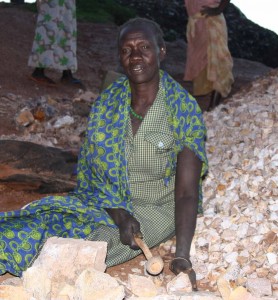 In dense slums and busy streets of Banda – Uganda, throngs of men and women struggle to earn a few Ugandan Shilling in any way they can. Some beg. Some sell hidden goods from Kenya at dirt-cheap prices. Others turn scraps of wood into charcoal, breathing harmful smoke into their lungs while laboring over the fire.
In dense slums and busy streets of Banda – Uganda, throngs of men and women struggle to earn a few Ugandan Shilling in any way they can. Some beg. Some sell hidden goods from Kenya at dirt-cheap prices. Others turn scraps of wood into charcoal, breathing harmful smoke into their lungs while laboring over the fire.
Most entrepreneurial families run small income generation activities directly out of their homes in low-income neighborhoods. They operate inadequate stores, roadside eateries, local fruit and vegetable stands or other small-scale ventures that they know will attract customers.
While these families have limited education and no money to grow successful businesses, their work ethic compels them to be proactive rather than wait for handouts. Instead of becoming dependent on charitable friends or government social welfare programs, they strive to provide for their children by the sweat of their brow.
They have the right attitude for success, but because of their disadvantaged situation, they are just barely getting from one day to the next.
A 2013 survey revealed that over 42 percent of the Ugandan workforce are engaged in the informal economy.
The number represents millions of people who live below the poverty line, struggling to put food on a table, trapped substandard housing and deprived of basic needs such as health care and sanitation. A large proportion of these informal workers are women trying to balance their childrearing responsibilities with the need to supplement their husbands’ meager income.
To take these businesses to the next level – from earning a little extra money on the side to developing a professional, growing and truly profitable operation – these hardworking entrepreneurs need what most business owners need: a loan.
However, because of their low income, poor families can only afford tiny payments on tiny loans. So small, in fact, that banks will not give them. Also, the risk of lending to a poor family with no assets is considered too high.
As a result, their economic pursuits stagnate, their dreams of a better life fade and they find themselves trapped in squalor.






